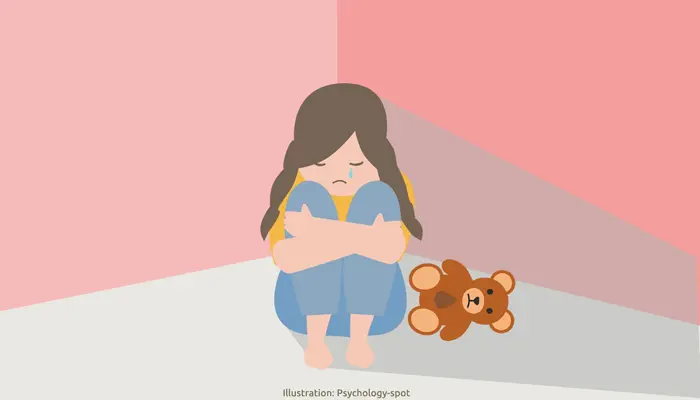
We tend to think that people are happier than us, especially when we see their profiles on Facebook, where they always appear smiling and surrounded by friends.
Everything seems to indicate that we allow ourselves to be carried away by the same illusion when it comes to assessing children’s concerns. That is, we tend to minimize them and maximize their levels of happiness. At least this is confirmed by a study carried out at the University of California.
The researchers recruited 228 healthy children between the ages of 4 and 11 and assessed their worries and fears. The curious thing was that when they asked their parents, they tended to classify the child as more carefree than the children themselves valued.
The researchers developed a second study to contrast these initial results. This time they made sure that parents and children answered exactly the same questions that assessed the level of anxiety, worry and fear. Once again, it was noted that parents underestimated the negative emotions their children experienced.
Finally, in a third round, another 90 children were recruited with their parents to evaluate the degree of optimism. As you can imagine, on this occasion the parents were not very precise in evaluating the degree of optimism of their children, attributing more positive emotions to them than they reported.
What is this phenomenon due to?
The explanations can be very varied. For example, researchers hypothesize that perhaps children perceive their emotions in a distorted way and that it is parents who paint the real picture.
At this point, adults often think that if children have not gone through really traumatic experiences, they have no reason to feel sad or worried. And, in a way, they are right, children do not have enough experience to gauge the level of their positive or negative emotions. However, this does not mean that they should feel happy or have no fears.
For example, the fact that dragons do not exist in reality does not mean that children do not fear them and that they do not even feel terrified by this image at night. What I mean is that each person experiences life experiences differently, so an event will harm us or make us happy to the same extent that we consider it to be significant.
On the other hand, another hypothesis could also be launched: parents are carried away by stereotypes when evaluating the emotional state of their children. In practice, beliefs that children do not have adult-like problems or that they do not understand the magnitude of events may cloud our perception of children’s reactions.
Whether for one reason or another, I think the important thing is to always pay attention to the little ones at home and not downplay their problems, fears and worries. Only in this way can we build a solid and understanding relationship that will last a lifetime.
Reference:
Lagattuta, K.H.; Sayfan, L. & Bamford, C (2012) Do you know how I feel? Parents underestimate worry and overestimate optimism compared to child self-report. Journal of Experimental Child Psychology; 113 (2): 211-232.




Leave a Reply